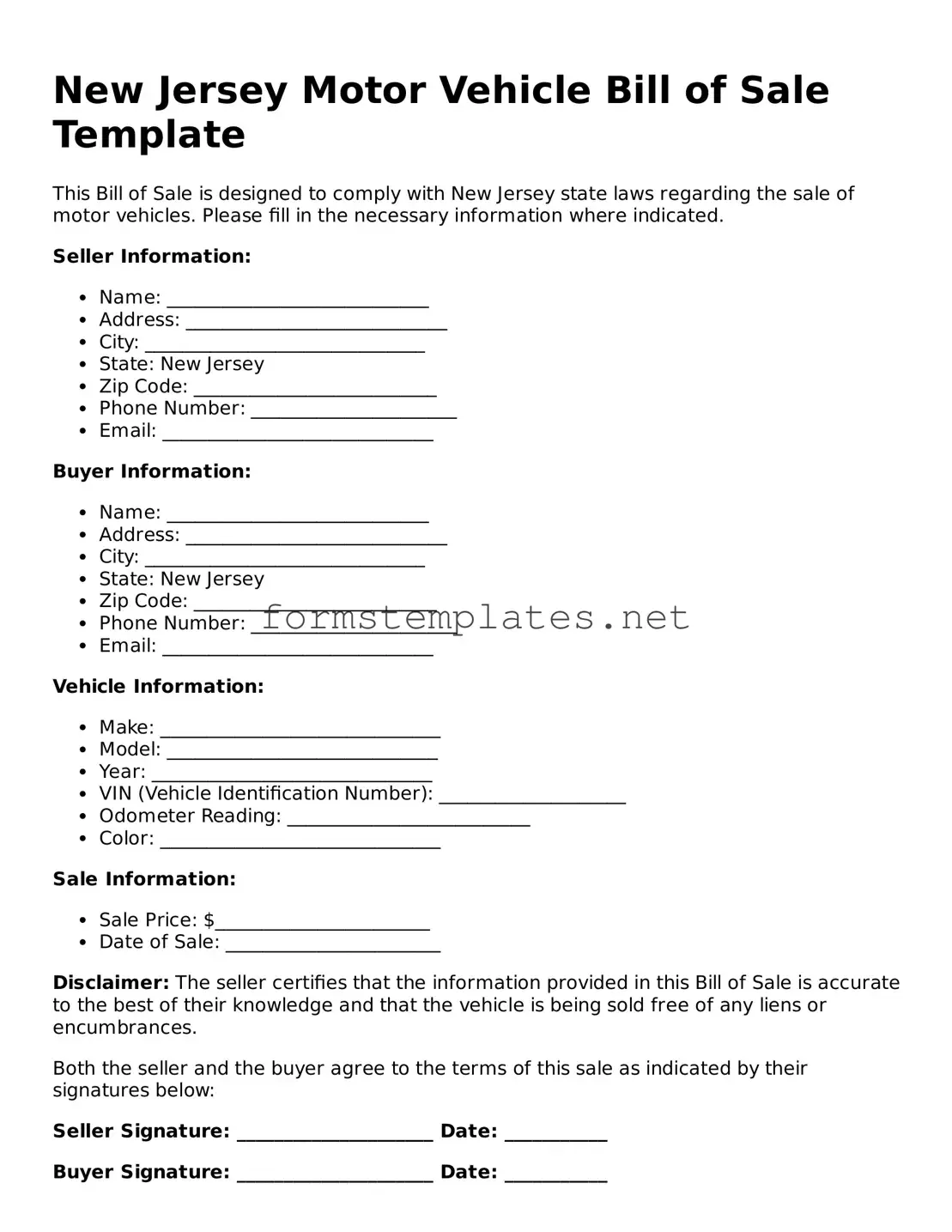Attorney-Approved New Jersey Motor Vehicle Bill of Sale Template
The New Jersey Motor Vehicle Bill of Sale form is a legal document that records the transfer of ownership of a motor vehicle from one party to another. This form serves as proof of sale and includes essential details such as the vehicle's identification number, sale price, and the names of both the buyer and seller. Completing this form is crucial for ensuring a smooth registration process with the New Jersey Motor Vehicle Commission.
Open Editor Now

Attorney-Approved New Jersey Motor Vehicle Bill of Sale Template
Open Editor Now

Open Editor Now
or
⇓ PDF Form
Your form still needs attention
Finalize Motor Vehicle Bill of Sale online — simple edits, saving, and download.